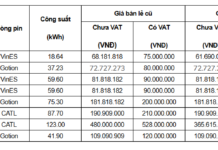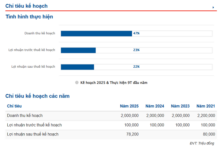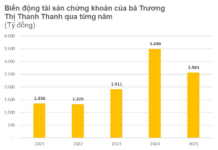According to Circular 24/2023 on the granting, revocation, and re-registration of motor vehicle licenses and plates, Circular 58/2020, Circular 15/2014, and Circular 36/2010 by the Ministry of Public Security, it is mandatory to transfer the title and registration when buying or selling used cars in Vietnam.
Specifically, Circular 24 states that when selling, gifting, inheriting, exchanging, contributing capital, allocating, or transferring a vehicle, the owner must retain the vehicle registration certificate and license plates (not hand them over to the organization or individual receiving the transferred ownership) and submit them to the vehicle registration authority to initiate the revocation process. If the transferred ownership includes a winning auction license plate, the owner must submit the vehicle registration certificate to the vehicle registration authority for revocation.
The owner has 30 days from the date of the sales contract to complete the revocation process. If the owner fails to do so within this period or fails to hand over the vehicle registration certificate and license plates to the buyer for their revocation process, the vehicle registration authority will issue a fine for non-compliance before processing the new owner’s request.

Transfer of title and registration is mandatory when buying or selling used cars.
Penalties for Failure to Transfer Title when Buying or Selling Used Cars
Circular 24/2023 by the Ministry of Public Security stipulates that in the event of buying or selling a used car, the previous owner must initiate the process to revoke the vehicle registration and license plates, after which the new owner must register the vehicle under their name. Therefore, if either party fails to comply with the regulations, they will be subject to the following fines:
Violation by the seller: For motorcycles, scooters, and similar vehicles, the fine ranges from 800,000 VND to 2,000,000 VND if the owner is an individual and from 1,600,000 VND to 4,000,000 VND if the owner is an organization. For automobiles, specialized vehicles, and similar vehicles, the fine ranges from 2,000,000 VND to 4,000,000 VND if the owner is an individual and from 4,000,000 VND to 8,000,000 VND if the owner is an organization.
Violation by the buyer: For motorcycles, scooters, and similar vehicles, the fine ranges from 400,000 VND to 600,000 VND if the owner is an individual and from 800,000 VND to 1,200,000 VND if the owner is an organization. For automobiles, specialized vehicles, and similar vehicles, the fine ranges from 2,000,000 VND to 4,000,000 VND if the owner is an individual and from 4,000,000 VND to 8,000,000 VND if the owner is an organization.
As evident, buying or selling a car without transferring the title can lead to legal risks for both parties involved. Additionally, delaying the title transfer process can make it more complicated to rectify the situation later on.
Furthermore, the seller may encounter other legal risks, such as being implicated if the buyer causes a traffic accident or receiving notifications for traffic violations committed by the new owner if the vehicle registration is not updated. There may also be other unforeseen risks, so it is advisable for both parties to promptly initiate the title transfer process to avoid potential legal complications arising from unforeseen circumstances.

Procedure for Buying a Used Car when the Previous Owner Cannot be Located or is Deceased
According to Article 31 of Circular 24, if the previous owner of a used car cannot be located or is deceased, it is still possible to transfer the vehicle’s title by following these steps:
Step 1: The organization or individual currently using the vehicle should go to the agency managing the vehicle’s registration records to initiate the revocation and re-registration process at the vehicle registration authority specified in Article 4 of Circular 24. If the record-managing agency is the same as the one handling the title transfer, the revocation process can be skipped.
Step 2: Proceed with the resolution: If the organization or individual currently using the vehicle has the ownership transfer documents from the previous owner and the ownership transfer documents from the last seller, the vehicle registration authority will issue a fine for non-compliance with the revocation process within two working days of receiving the complete and valid vehicle registration application. They will then proceed with the title transfer process according to regulations.
If the organization or individual currently using the vehicle does not have the ownership transfer documents from the previous owner and the last seller, the vehicle registration authority will issue a 30-day temporary permit to use the vehicle. Within two working days of receiving the title transfer application, the vehicle registration authority must send a notification to the previous owner, co-send to the vehicle registration authority that registered the vehicle, publicly post the received title transfer request at the vehicle registration authority’s headquarters, and verify the vehicle theft records and registration data.
After 30 days, if there are no disputes or complaints, the vehicle registration authority will issue a fine for non-compliance with the revocation process and proceed with the title transfer according to regulations.




































